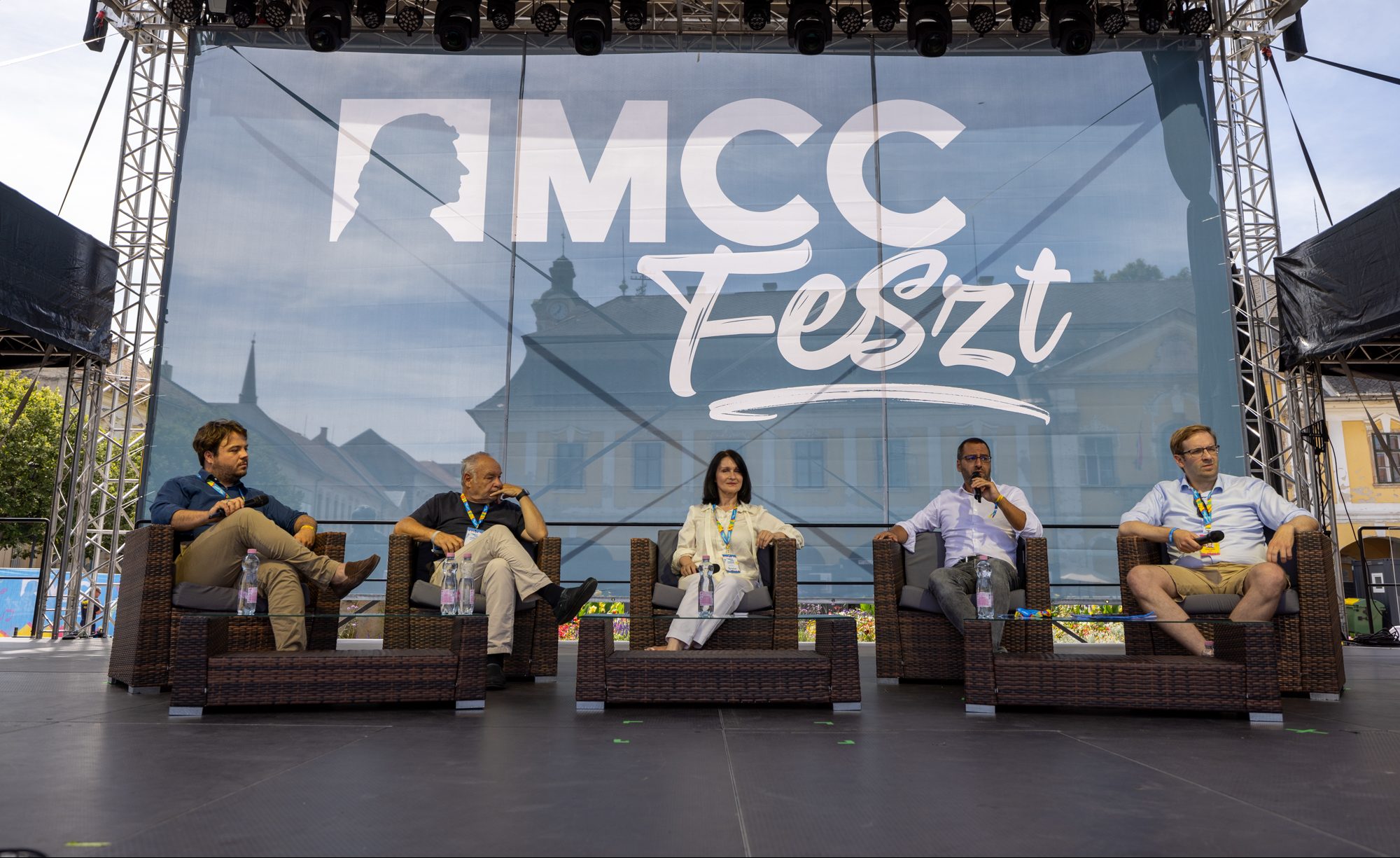The Minister of the Prime Minister's Office visited Washington D.C. on Wednesday, and met mostly with Republican senators and congressmen.Continue reading

There were a number of interesting presentations and panel discussions at this year’s MCC Feszt in Esztergom, one of which focused on journalism. Among the panelists were Ildikó Csuhaj from oppositionist television channel ATV, Tamás Lánczi, online director of Hirado.hu (belonging to public broadcaster MTVA), Zoltán Szalai, Director General of Mathias Corvinus Collegium (MCC) and Director of conservative newspaper Mandiner, and Péter Németh, Editor-in-Chief of oppositionist newspaper Népszava. The moderator was Károly Nagy, manager of the Transparent Journalism Foundation, reports Hirado.hu.
The moderator asked participants what was the most important public event of the past year for the media and journalism, and they gave different answers. Ildikó Csuhaj replied that the recent amendment to the Criminal Code on defamation and libel in public discourse had liberal characteristics and was welcomed by rights defenders, but that freedom of the press cannot be a matter of free speech, and that it is not a question of ideology.
Tamás Lánczi drew attention to the impact of artificial intelligence on the media and the public, saying that the world is undergoing a major change and that we may not yet understand what exactly is happening. He added that
journalism has been “eaten up” by information technology and that today we are fighting against “machines,” against the content and algorithms, a battle that is almost unwinnable.
Another important problem is that reality and fiction are becoming indistinguishable, with fake news that even professionals cannot distinguish from the real thing.
The panel also discussed the media coverage of opposition and government politicians. According to Zoltán Szalai, both Mandiner and MCC, run by him, invest a lot of energy in interviewing opposition politicians and experts, but experience shows that they are not particularly receptive to this. At the same time, Péter Németh believes that it is not opposition politicians who are difficult to reach, but government politicians.
Lánczi tried to broaden the scope of interpretation and said that
modern technology forces people into opinion bubbles, and politicians have no interest in going into another bubble.
“Sitting down with your opponent, taking a different opinion into your own bubble is a political mistake,” he said, adding that this is not a Hungarian trend, but an international one.
He remarked that this is not healthy, he himself is trying to have as many debates as possible, which is why Hirado.hu also tries to interview opposition politicians. However, according to him, few of them take advantage of this opportunity, for example, politicians from the biggest opposition party, the Democratic Coalition, always turn down invitations.
He also explained that those who step out of the bubble take a risk, that is what the algorithm forces us to do.
The number of clicks and the algorithm decide a lot, and the whole journalism profession is vulnerable because of it.
What reaches the Hungarian public is decided in the United States by people we do not even know, he explained. According to Lánczi, the EU should take action to break up the influential monopolies, which are almost completely uncontrollable – and located mainly in the US – and even fine them for their behavior.
Asked about the situation of freedom of expression in Hungary, Szalai said that figures show that people are reading more political content than before, and television viewing figures are also good, with opposition media consumers consuming much less pro-government content than vice versa.
It is difficult to be a journalist today, there is a kind of sovereignty struggle going on,”
Lánczi said, adding that journalists are not murdered in Hungary as they are in Malta or Slovakia, and freedom begins with the fact that no one has to fear being hurt for their opinions or what they write. That is why reports that cast doubt on the existence of press freedom in Hungary are ridiculous, he concluded.
Featured photo via Facebook/MCC Feszt